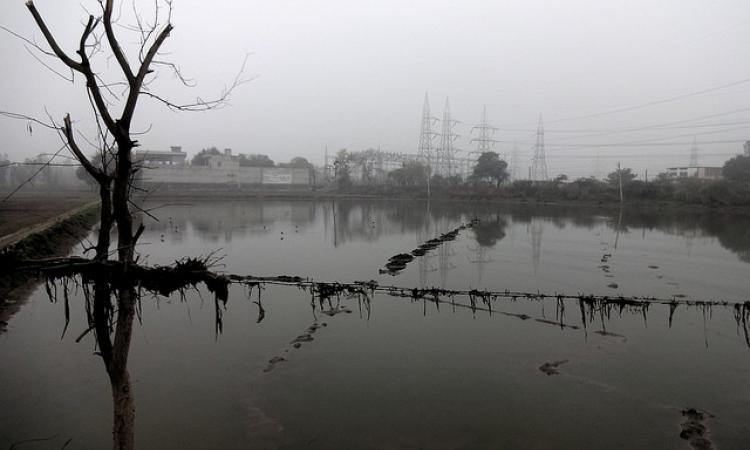
2 million tonnes of food grains lost annually in India
A World Bank study shows that nearly 1.2 to 2 million tonnes of foodgrain production is lost in India every year due to waterlogging. It further states that almost 1.93% of the total command area being served by major and medium irrigation projects in the country, is waterlogged. As per the Ministry of Water Resources, the Centre gives Rs. 25,000/hectare to farmers facing waterlogging issues and nearly 78 thousand hectares of area have been already reclaimed by the Government.
Delhi is world's second most water-stressed city
A study conducted by The Nature Conservancy has ranked Delhi the second most water stressed city in the world, while Tokyo in Japan comes first. Kolkata, Chennai, Bangalore and Hyderabad were the other Indian cities that were in the world's top 20 water-stressed cities. The research has found that the reason behind the water-stress in cities is poor infrastructure and geographical and financial limitations along with higher population in urban contexts that raises pressure on the municipal water supply.
Pampa-Achankovil-Vaipar link deterimental
According to the hydro-environmental impact study conducted by the Centre for Water Resources and Distribution Management (CWRDM), the proposed Pampa-Achankovil-Vaipar linking project could damage 50% of Kerala's ecologically sensitive areas. The areas under threat are Kuttanad rice farming, Vembanad wetland ecosystem and the biodiversity of the Western Ghats. It further states that the the National Water Development Authority has provided false data on the status of available water in the Pampa and Achankovil rivers, both of which are water-deficit.
Chopra panel objects to construction of dams in paraglacial regions
Chopra Committee, in its impact study on receding galciers on hydroelectric projects, has recommended that no dams be constructed in paraglacial regions i.e. the regions between 2,200 to 2,500 metres above sea level. According to the Panel, these regions have loose glacial debris, which when carried downstream can be disastrous. The study has further reported that nearly 76 dams with a cumulative capacity of more than 3100 MW is present in Uttarakhand's paragalcial region.
Rising tide blows away hundreds of houses in Mousuni island, West Bengal
Around 2,000 families in three villages of Mousuni, a sinking island in the Sunderbans, West Bengal, have been affected by the rising tide caused by the Spring Equinox (the moment when the sun crosses the Earth's equator directly, leading to equal length of day and night). According to the authorities, the situation has worsened as villagers are reluctant to relocate but the villagers say that if the Government repairs the 12km embankment their lives can be spared.
This is a weekly roundup of important news from July 21-28, 2014. Also read last week's policy matters updates.